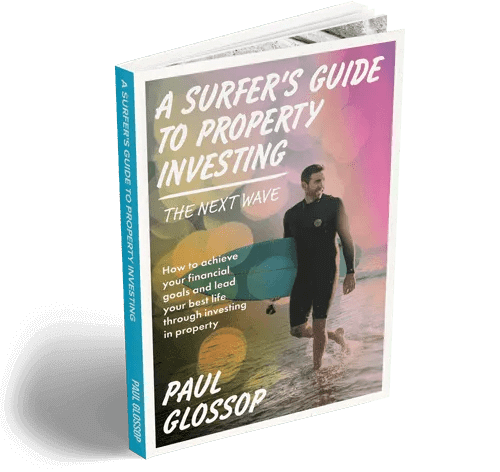Paul Glossop: Welcome again guys to Pure Property Investment one on one. I’m joined again today by Ross Le Quesne. Ross is the Principal of Aussie home loans in Parramatta and Rouse Hill, for those who don’t know the Sydney metro areas, probably right in the thick of the western suburb growth corridor. There’s probably more tall towers in Parramatta than there is in other most major cities in this country these days anyway.
Topically, one thing that we want to discuss today, if it’s ok with you Ross, is probably more speaking about some borrowing capacity, and, in general, borrowing capacity both for owner-occupiers and investors. Look, I personally see it a lot where people probably think I earn X amount, therefore, I should be able to get a pre-approval for Y amount, or I have a deposit of call it 250,000 dollars, therefore, I should be able to get a million dollar loan, kind of doing the equations and not necessarily knowing the intricacies behind how you stack up as far as the banks are concerned. So, if you wouldn’t mind lending your guide to our viewers on borrowing capacity and things people need to consider.
Ross Le Quesne: Yeah, I’ll cover three things in regards to borrowing capacity today. The first one is income. So, the level of income has probably the biggest impact on how much you can borrow. So, one, for a lot of people if they PAYG, that’s got to do with wages. It can also include stuff like bonuses, overtimes and sales commissions.
The other part is if you’re self-employed, so it’s about how much income you’re showing. A lot of our property investors really want to invest in property. At the same time, they want to really reduce their tax, and, unfortunately, those two strategies don’t go hand-in-hand. So, it’s a matter of working out your property goals and earning that sort of level of income, and showing that level of income that’s going to help you into your properties.
So, the second part of income is got to do with your rents. So, for a lot of our property investors, we suggest regularly looking at your rents, having a look at your properties – is there anything in your portfolio that you can potentially increase that rental income? Is there a dual income possibility through maybe a granny flat or some other means of creating a double income for the property? The second thing is really your expenses, so a big thing for lenders at the moment is they want detailed living expenses down, that lists everything you do, and when you’re setting a goal, it’s for your future, so sometimes we have to spend less now to be able to have a fantastic retirement that we really want.
The other thing with expenses is personal debts. So, you might need to put on that sports car for another few years, while you focus, so don’t take out big novated leases or personal loans. Watch your interest-free purchases and your credit card limits because all of these things will affect your actual borrowing capacity.
Paul Glossop: Yeah, there’s a couple of things here, I think. You were saying as well, I think, a fair credit history was the other part that you were speaking about that was some quite an important part of making sure your borrowing capacity is fully understood.
Ross Le Quesne: Yeah, so there’s several factors to credit history. One is the obvious, making your repayments on time for all those loan facilities that you’ve got, and that’s important when you’re looking to borrow more with your existing lender. They’re going to look at your repayment history on all your facilities with that particular lender, and if you default on some other things, it’ll put a bad mark on your credit file, which makes it very difficult in accessing finance for investors.
The other part is just general credit history. There’s about 90 factors that the banks look at with your credit history, and that’s stability of employment, stability of residence, how many credit inquiries you’ve made, how many times you’ve applied for a personal loan or a credit card, they all add up into the mix in terms of your credit history. So, definitely a bit to that. It’s, but, nonetheless, a very important step to consider when considering borrowing capacity.
Paul Glossop: Yeah, I think two things I’ve taken away from that segment there and probably your insights, is the first one is the importance of a mortgage broker in this environment couldn’t be any more heightened as compared to the years gone by. I think it’s more important now than ever to have a discussion with a good mortgage broker rather than potentially just with your banker or your local bank because, like you said, the different policies across the gamut of different lenders at the moment, it couldn’t be more varied if it tried, and you’ve just listed a few there. But, if you get denied from your bank, it doesn’t necessarily mean that your borrowing capacity is all of a sudden capped out. It might mean that that bank has certain policy restrictions, which you don’t fall in guidance with.
The other part to that I think is in one thing you probably outlined with regards to policy, as well as your debt limits, is delayed gratification. It’s extremely important as a property investor, but also as an owner-occupier, if you’re trying to get borrowing capacity or you’re trying to get your finance ready to buy whatever you want to buy. If you understand in the background what’s going to be a black mark as opposed to the right credit score on your policy, understanding how you can potentially put off those expenses, whether it be a credit card, whether it be a novated lease, and anything that’s going to potentially work against you. Understand do you really need that or want that as opposed to your end goal, which is maybe creating wealth or buying your dream home.
So, there’s a couple of key things there, guys, that I think are very worthwhile considering and, again, a discussion I think with Ross and his team is probably worthwhile noting, and to make sure you understand where you sit and what your borrowing capacity is. So, feel free to contact him at his details at the bottom of the screen, and, likewise, with ours, our details at the bottom, and we can catch up anytime. Speak soon.






